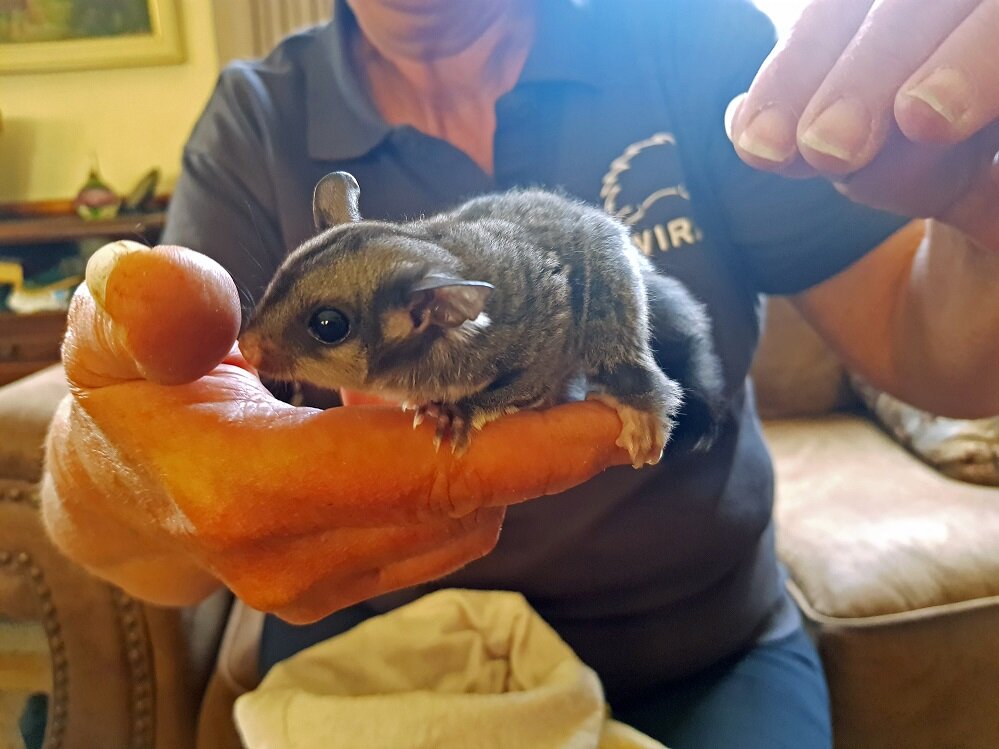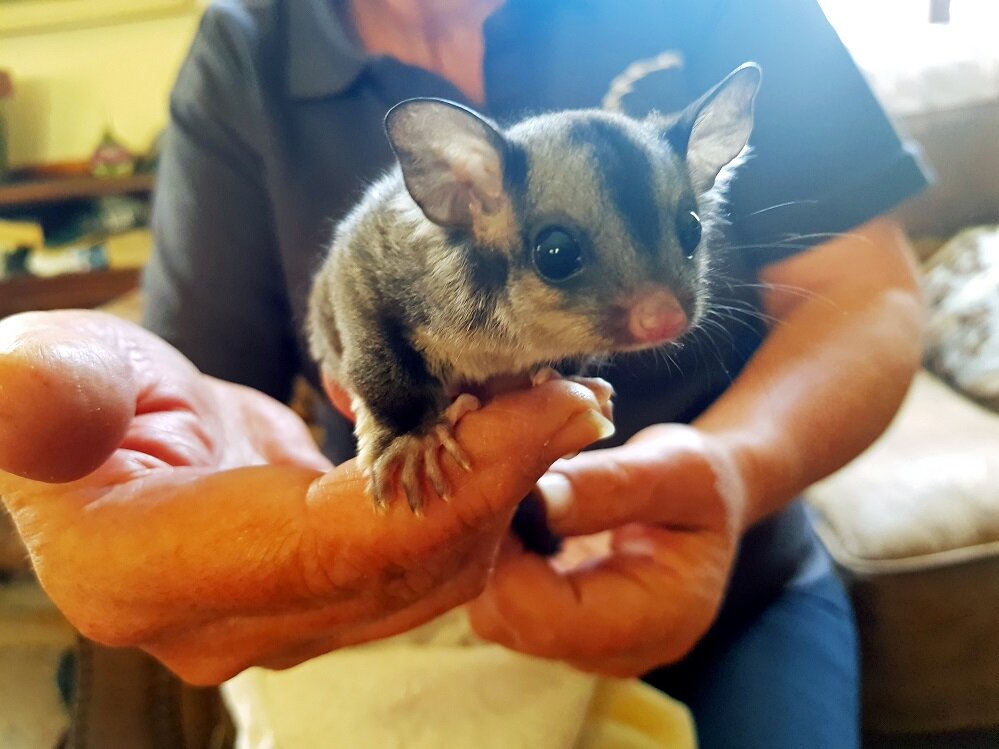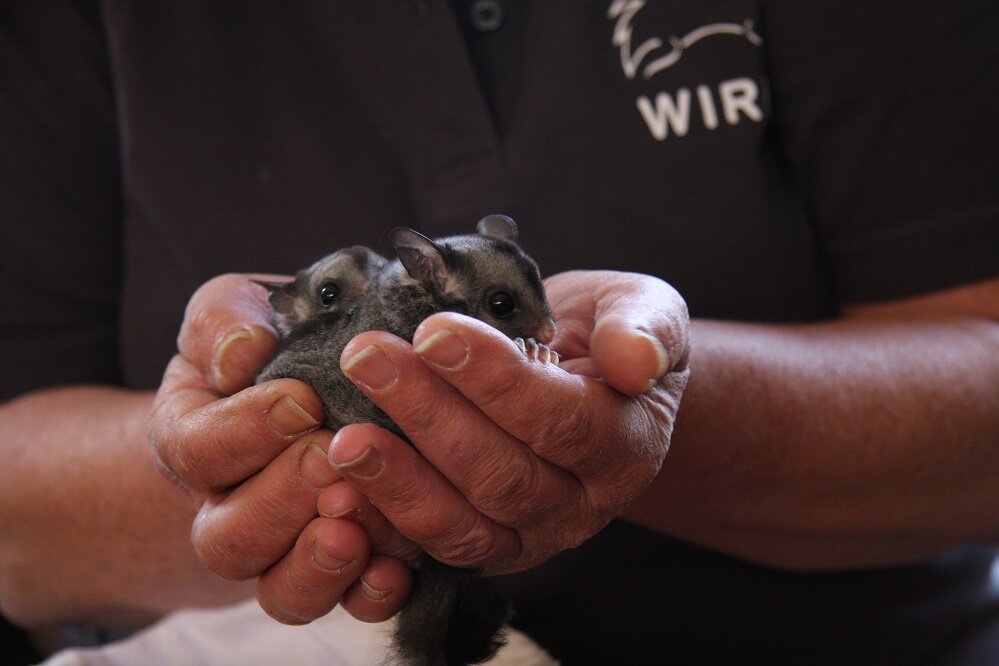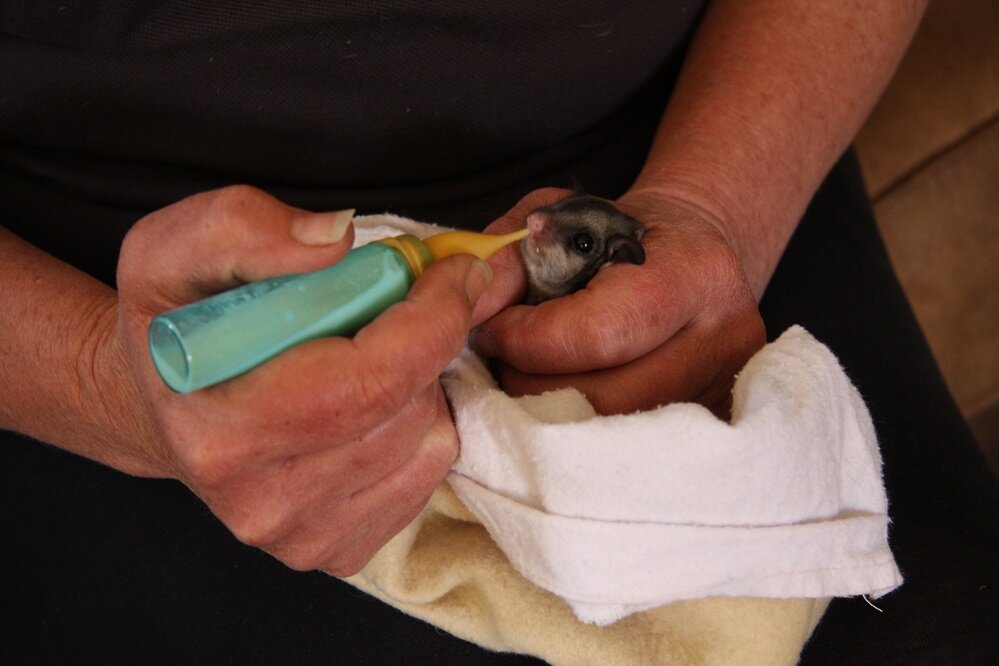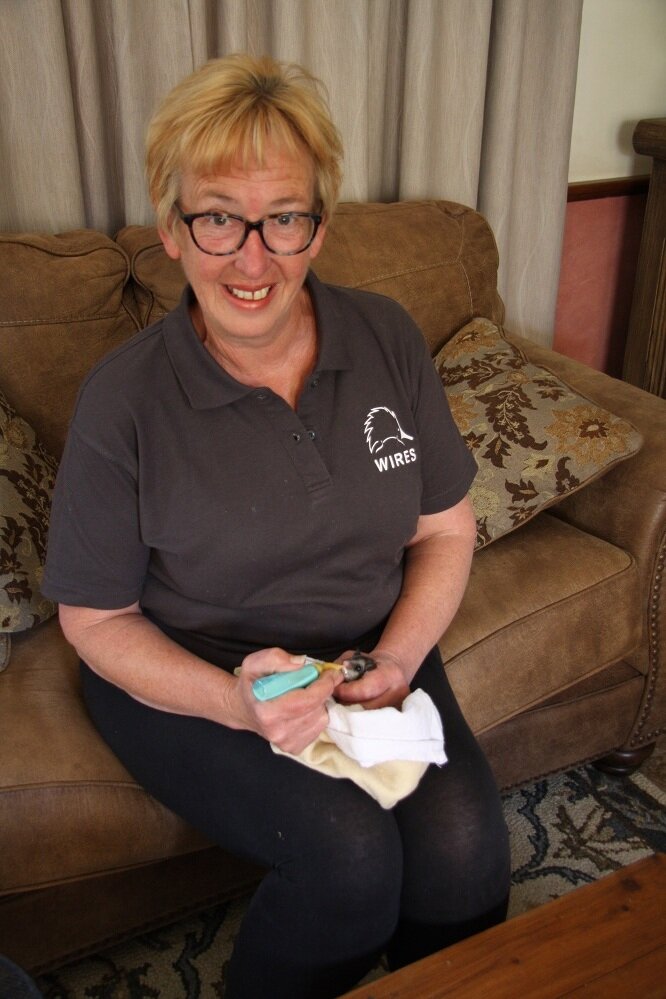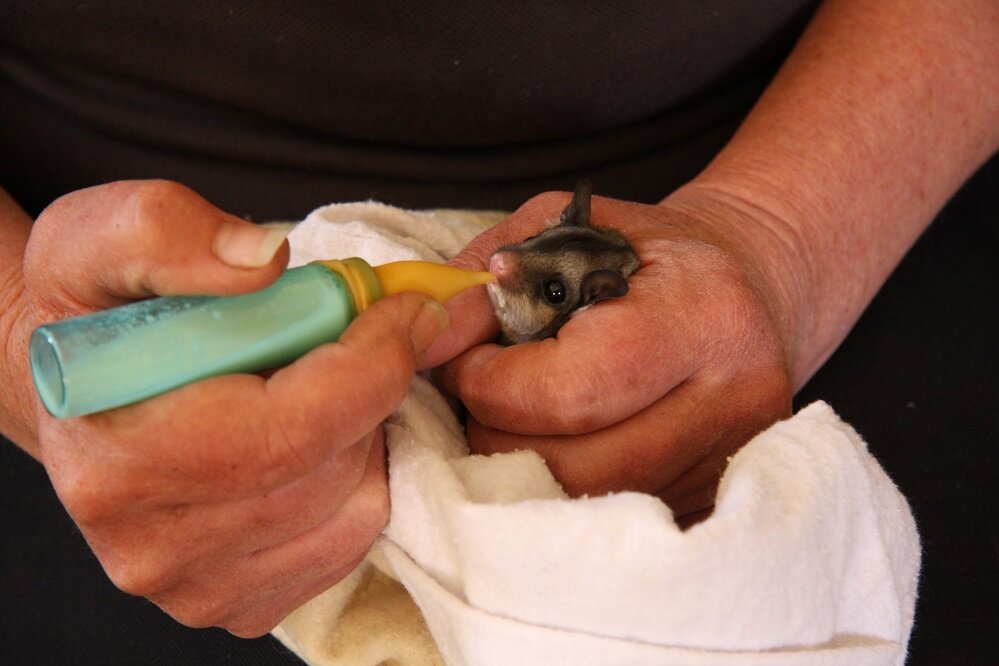Jane Passer WIRES
“It’s a lot of late nights and a lot of washing!” said Jane Passer, when asked about what it takes to be a volunteer with WIRES.
Jane, who is originally from New Zealand, has now been a wildlife carer for the past 19 years. She has had countless rescued animals of all description pass through her home — not even she knows how many animals have been in her care.
“Too many to answer!” said Jane. “Echidnas, baby birds, adult birds, lizards, snakes — I won't handle venomous snakes, but I will handle pythons and things like that — joeys of course. So a full range of animals, but mainly wombats… I've done wombats for the last ten years and I just love them.”
On any given day, Jane could have up to five wombats in her care, and her yard includes a specially built secure wombat enclosure, where they can burrow in safety.
“I have quite a big setup, which has Colorbond dug into the ground about 1.5 meters, so we have two burrows in the ground, where they live until they are ready to go out to wherever they're going,” she said.
But when Orange City Life paid Jane a visit, she happened to have some very special guests in her care — a pair of baby sugar gliders.
“These little guys came into care four weeks ago at 33 grams. So, very tiny; they are brothers, about 80 days old, but they've been feeding very well.”
Sugar gliders don’t often find their way in to care, said Jane, as they are normally well looked after by their parents and being nocturnal tree-dwellers, they have few predators.
“These little guys eat predominantly wattle; they eat the sap and the bugs that come with the wattle, but they live high in the eucalypts,” she said. “They are not endangered; we just don't see them.”
Caring for the young sugar gliders involves bottle feeding four times a day.
“It is quite a big ask, they are on special formula a sweetened lactose-free, nectar rich formula that is specially made for gliders,” she said.
“We then have to also supply them with all their boughs and everything else so that's a daily thing as well collecting fresh boughs and scraping sap off trees and doing weird things like that, but they are just so incredibly special!”
Returning them to the wild is not as straight forward as you’d think, as Jane has to find a way to securely release them high up in trees.
Being a WIRES volunteers is not something everyone is suited for, but seeing her animals return to the wild is why Jane does it.
“It is a responsibility and it is not something everybody can do, because you take them on knowing you have to let them go,” she said. “They are not pets, you can't play with them like pets, or treat them like pets. It is just keep them dark, keep them quiet and keep them happy, watch them grow up and let them go… It is what I do it for; to see them go, to get them back to the wild.”
WIRES relies heavily on the generosity of caring people for support. They always need help to feed all the native animals in car. If you would like to assist you can donate at wires.org.au

